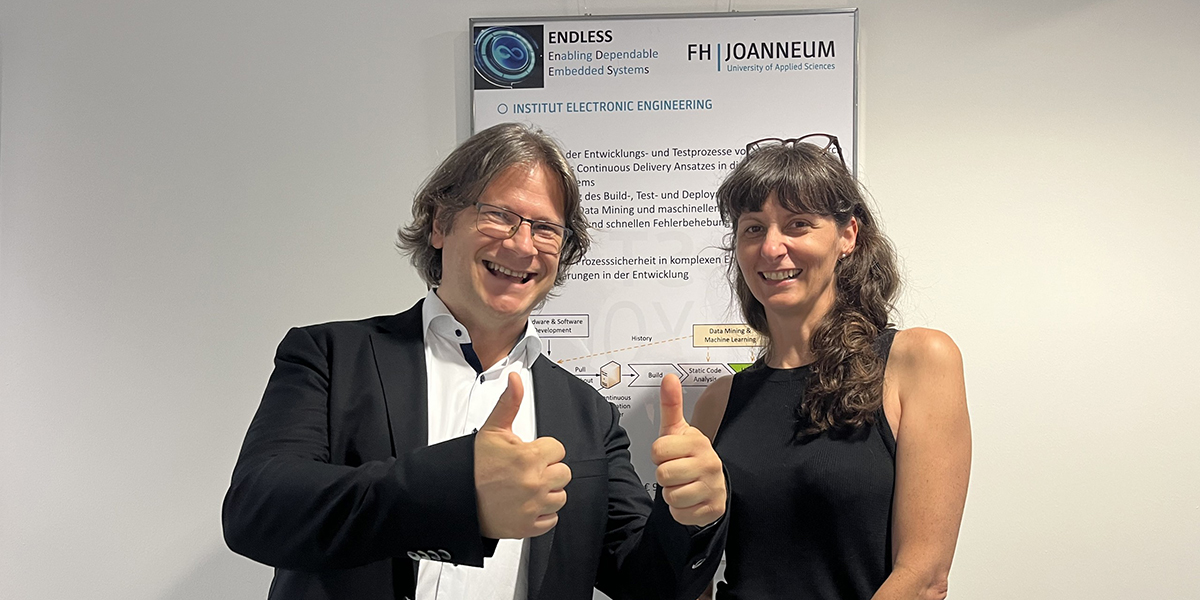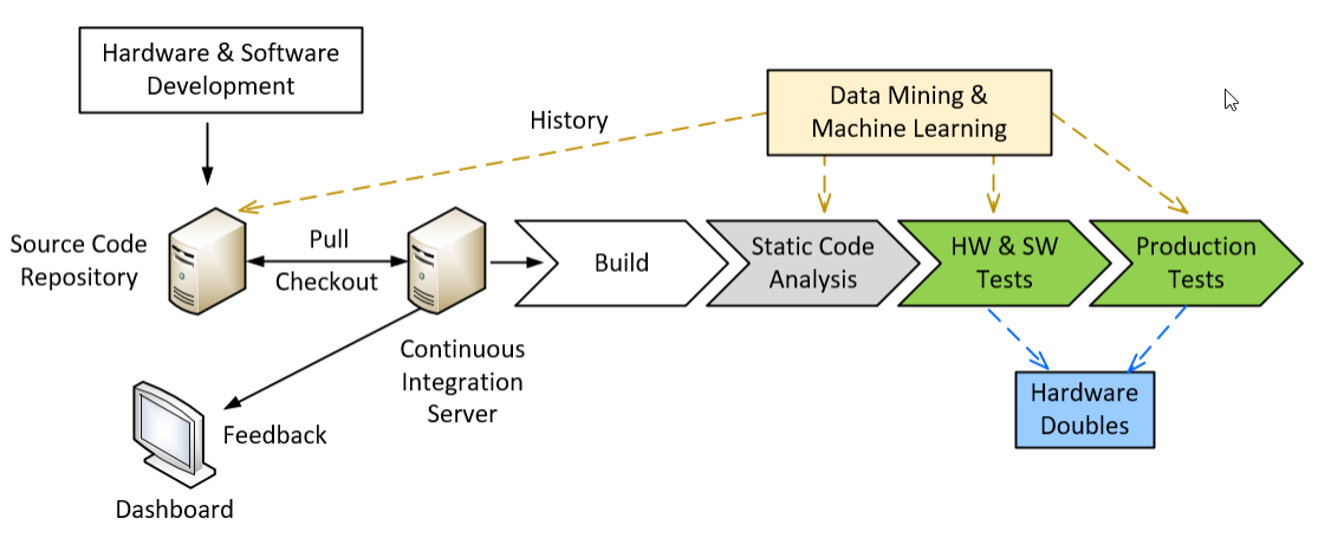Product developments that require hardware and software coupled with intensive multi-level testing inherently carry high risks. The process is lengthy, error-prone, and expensive. Therefore, the starting point of the “Endless” project was the idea of making development more flexible, traceable, and thus more efficient through the application ofagile methods.
The strategy is as follows: The development of software and hardware takes place in parallel and is swiftly falsified by short feedback cycles for early error detection. The aim is to achieve the shortest possible cycles through a high degree of automation. In software development, this is already a standard practice, while in hardware development a HiL (hardware in the loop) system is used to simulate the hardware. This eliminates the need to create and test separate setups for each prototype.










